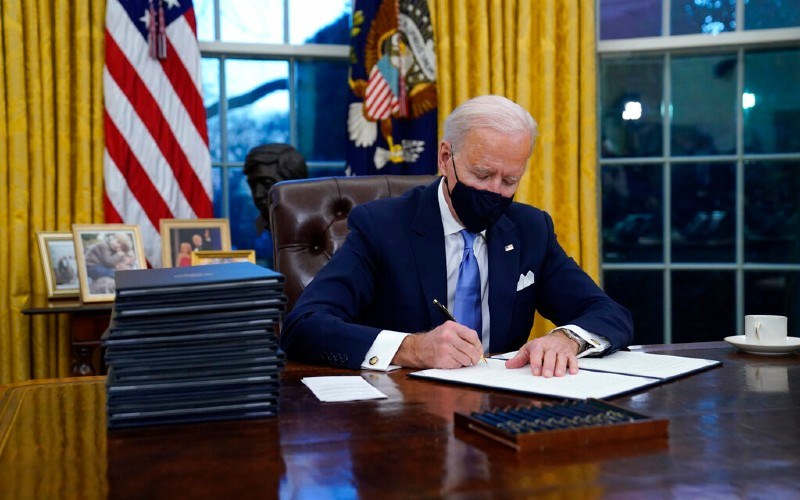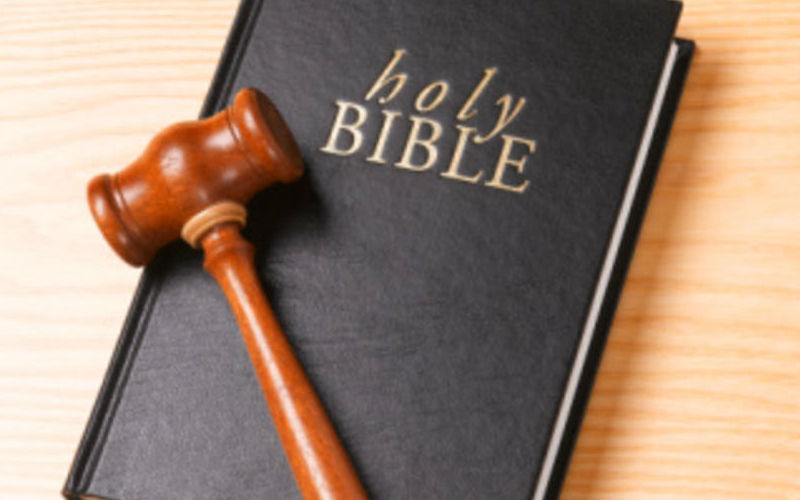With little attention paid to the rise in crime beginning with the racial riots and looting last summer after the African American George Floyd was killed by a white Minnesota police officer while being arrested – resulting in decreased policing and escalating violence – the Biden administration continues to concentrate on race politics … highlighting discrimination or intolerance as the focal point of criminal behavior in America.
Protecting the few, but what about the many?
As criminal activity and homicides in many of America’s largest Democratic-run cities has proliferated after funding for police has been but, the issue of minorities suffering from lack of protection continues to be a moot issue under the Biden administration as Attorney General Merrick Garland endeavors to keep his promise to focus on civil rights violations.
This vow was reinforced by Assistant Attorney General Kristen Clarke – who was recently sworn in by the Biden administration as the first black woman in her role – as she focuses on hate crimes above all else on the onset of LGBT Pride Month.
“Hate crimes are especially pernicious because they harm targeted individuals and the entire community to which the individual belongs,” Clarke told The Associated Press. “No community should live in fear because of who they are, where they are from, or what they believe, and it is our goal to make that a reality.”
No mention of soaring crime and homicides in black communities because of a lack of law enforcement – or of the increased violence or killings of police – was discussed by those supporting the hate crimes legislation.
Blame it on Trump?
Despite the fact that the 7,314 hate crimes reported in 2019 under then-President Donald Trump are well below the high of 7,783 such crimes reported in 2008 when Biden served as vice president under former President Barack Obama, the president has repeatedly blamed Trump for stoking racial violence while claiming his administration is the cure.
“[Standing against hatred and racism] – the ugly poison that has long haunted and plagued our nation – [is what brings America together],” Biden proclaimed at a White House event Thursday, according to NPR. "My message to all of those who are hurting is: We see you and the Congress has said, we see you, and we are committed to stop the hatred and the bias."
Rep. Grace Meng (D-N.Y.) and Sen. Mazie Hirono (D-Hawaii) introduced the new legislation, which purports to make the reporting of hate crimes easier at state and local levels through increased public outreach and by making reporting resources accessible in numerous languages online.
In addition, the legislation calls the Department of Justice to position a point person to expedite hate crime reviews concerning COVID-19, while authorizing grants to state and local governments to facilitate programs geared at reducing and handling hate crimes.
Harris – considered the first African American and Asian American vice president – has often joined Biden in blaming hate crimes targeting Asian Americans on Trump because he called out China for spreading the coronavirus … a claim that continues to gain bipartisan and scientific support.
"This violence – it did not come from nowhere, and none of it is new,” Harris said when introducing Biden before he signed the legislation, according to NPR. “In my life – my lived experience – I have seen how hate can pervade our communities, I have seen how hate can impede our progress and I have seen how people uniting against hate can strengthen our country."
Last month, Harris incited Asian Americans to turn pain and outrage into political power, and on Thursday, she restoked her social justice plea – one that critics condemn as inciting racial tension … rather than unity.
"Here's the truth: racism exists in America,” Harris concluded. “Xenophobia exists in America, anti-Semitism, Islamophobia, homophobia, transphobia – it all exists, and so the work to address injustice wherever … it exists remains the work ahead."
Joe can’t please ‘em all …
Even though Biden received praise from many minorities and the LGBT community for signing the hate crimes legislation Thursday, some activists were “bitterly disappointed” on Tuesday when he neglected to address slavery reparations during a speech in Tulsa, Oklahoma, on racial violence given on the 100th anniversary of the 1921 race massacre when he talked about a white mob attacking and killing 300 African Americans.
"[The Tulsa massacre was] an act of hate and domestic terrorism, with a through-line that exists today," Biden said, according to TheBlaze.
But Biden did not go far enough, says activist Dreisen Heath, a researcher for Human Rights Watch who reportedly stormed off immediately after the president’s speech out of frustration that he did not mention reparations.
"It's not enough to just come in and say words and reiterate the truthful narrative," Heath told Politico. "This is a huge national [and] global moment – everybody is looking here – so why not start the process for the precedent? Why not make Tulsa a precedent for reparations nationally? Why not commit to signing H.R. 40 into law? Why not commit to establishing an H.R. 40 reparations commission if the legislative avenues fail?"
In a private discussion with lawmakers, Biden said his first priority currently is to pass his infrastructure deal, while he expressed his doubts about the U.S. Senate passing reparations – which has not come up for a vote in the House of Representatives yet.
Politico noted that a poll conducted earlier this year shows that only 38% of U.S. voters (60% of Democrats) would like to see a commission formed to study reparations for slavery.







